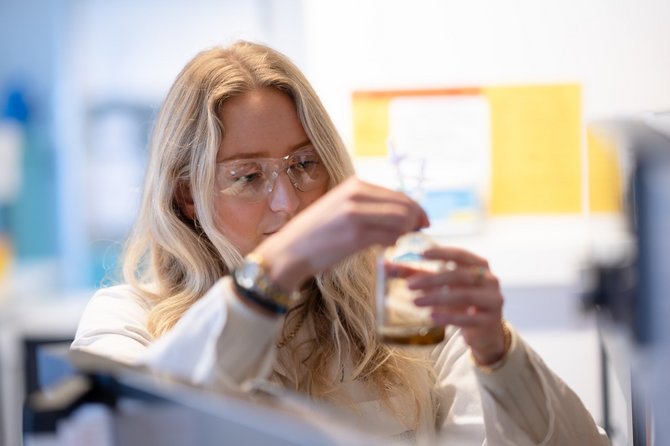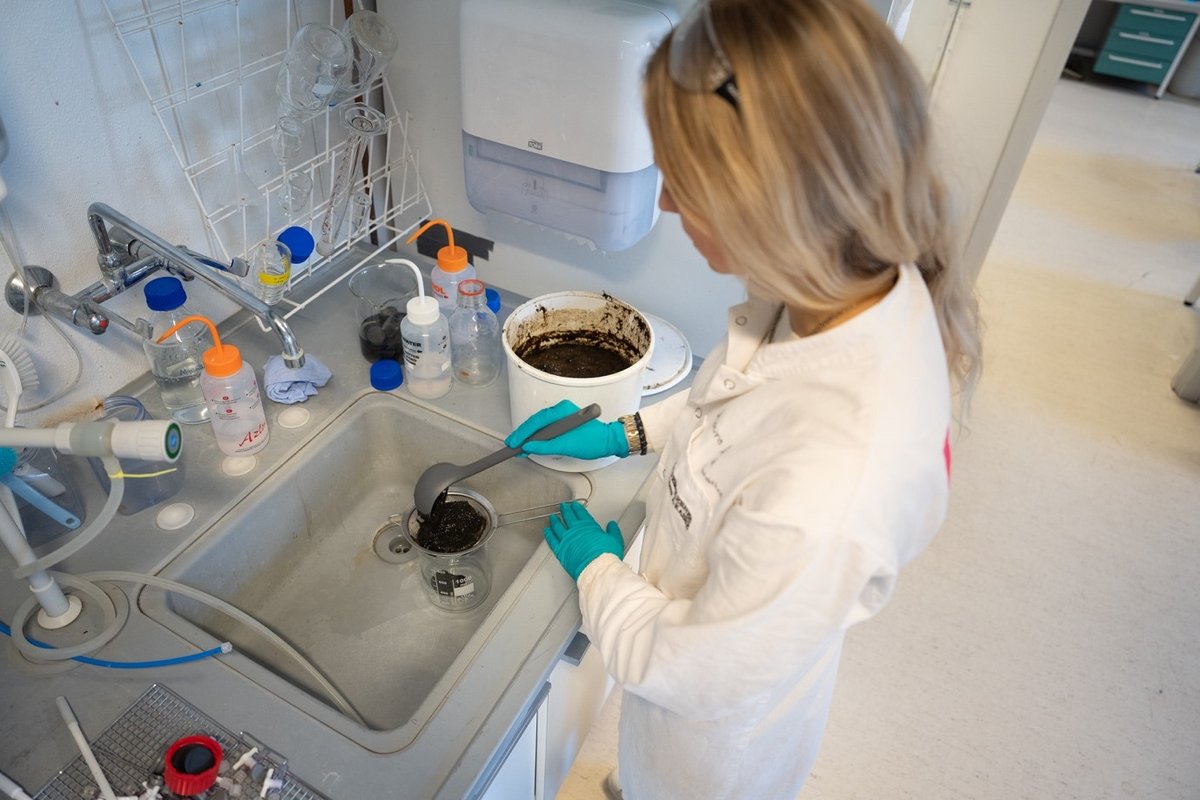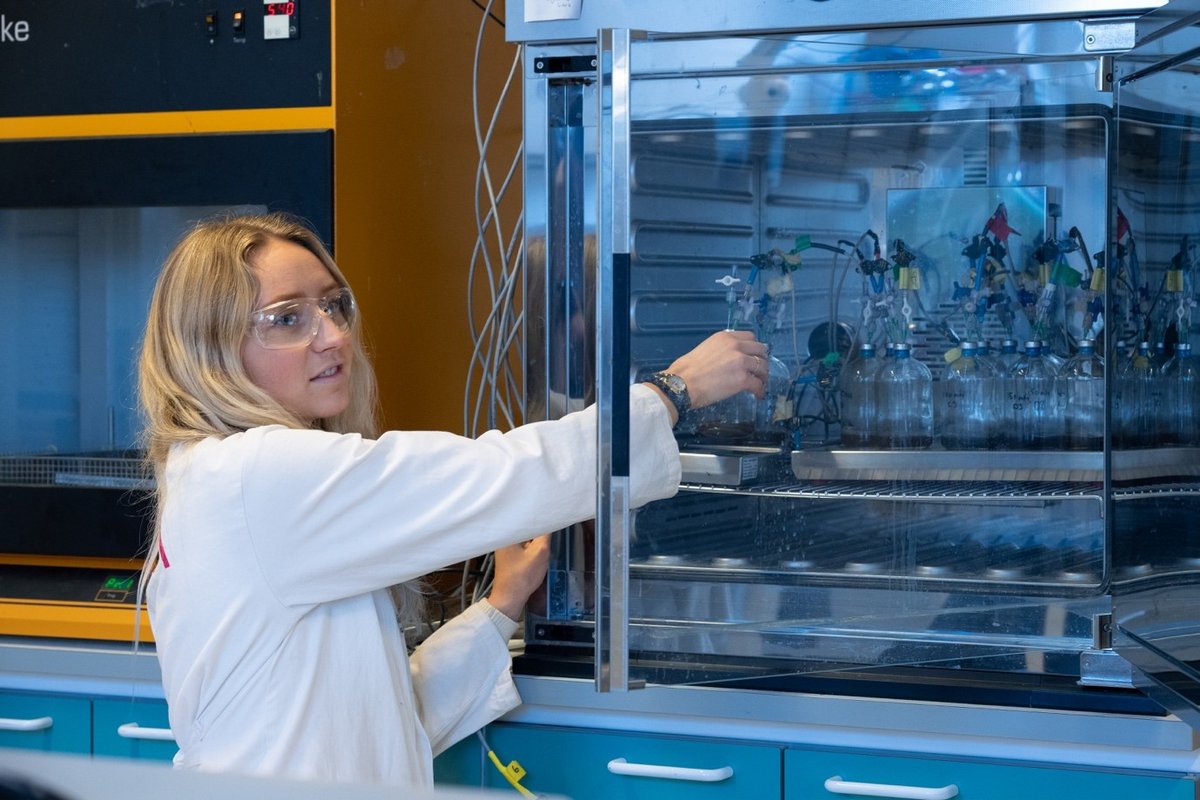
"I don't think I feel quite as powerless against climate change as many of my peers on other programmes. I meet researchers and students in the laboratories where solutions already exist, and where we’re working to make the technologies ready for the real world,” says Laura Marie Hviid, a Bachelor’s student studying chemical engineering at Aarhus University.
She applied for the programme because she had ambitions of working on exciting projects with medicine. But that is not how the story went. Instead, she was gripped by the serious challenges surrounding energy and the green transition.
"In recent years, the effects of climate change have become evident for the whole world. Everyone knows that the green transition is urgent and universities are therefore particularly busy working on solutions to our energy challenges. We have a shared mission and it’s so cool to be a part of it. We want to create a society that doesn’t need fossil fuels," she says.
Laura Marie has built her own biogas reactor as part of her Bachelor's project. In the reactor, she uses cow slurry that contains some special microbes. The microbes produce a concentrated type of natural gas if they are fed carbon dioxide and hydrogen generated by wind turbines.
Through this process, Laura Marie has created a green cycle that not only supplies us with energy, but that also helps reduce emissions of greenhouse gases from industrial chimneys.
"It's almost beautiful," laughs Laura Marie.
The article continues below the image

She emphasises that there is some way to go before her small reactor in the laboratory can become reality.
"It may sound very easy. And you may also think, why hasn’t anyone tried this before? But from a chemical and biological perspective, it’s a complex engineering challenge. For example, we need to find an optimal way of capturing carbon dioxide from industrial chimneys. At the moment, we use chemicals that are partially toxic to the microbes," she says.
Laura Marie is therefore testing various new types of chemicals that can ensure a high concentration of carbon dioxide and better growth conditions for the microbes.
"I spend many hours in the laboratory. I love it. It's great to be on the trail of something. I know that there are many mistakes and disappointments on the road to success. That's just the way it is in scientific work, and I'm pretty resilient," she says.
The article continues below the image

After completing her Bachelor of Engineering programme in chemical engineering, Laura Marie plans to continue to an MSc in Engineering, with a specialisation in energy.
“I really want to become even more qualified and be more involved in research, particularly process technology. The best part of studying engineering is seeing how what you’re working on in the lab can be used in the real world, at a large facility. It’s a really big motivational factor," she says.